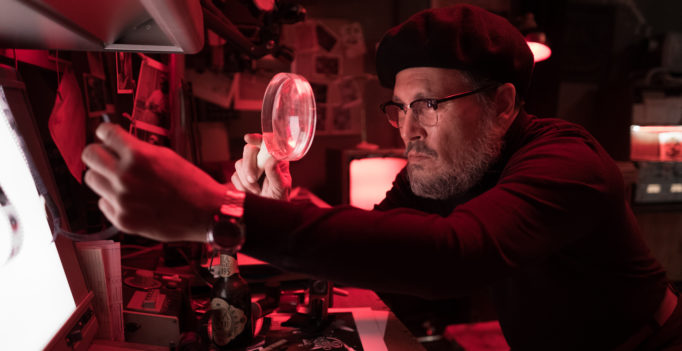Minamata was in the running for the inaugural Fan Favourite Oscar earlier this year. The primary issue: nobody really knew what Minamata was. It was a nominee that was championed by Johnny Depp’s loyal fanbase, and the dedication resulted in the mystery movie coming in third-place ahead of Spider-Man: No Way Home and tick, tick…BOOM!.
After a fleeting theatrical run prior to the Oscars, movie goers can now discover Minamata at home. In my opinion, it’s good and much better than its infamous title as “that random Johnny Depp movie”. I don’t think it entirely sticks its landing, but director Andrew Levitas delivers a movie that enlightens and affects audiences.
Adapted from Aileen Mioko Smith and photojournalist W. Eugene Smith’s book of the same name, Levitas recollects Eugene’s trip to Minamata to document the escalating issue of mercury pollution. Despite being reclusive and stubborn, Smith is commissioned by Life magazine editor Robert Hayes (Bill Nighy) after the photojournalist is inspired by a Japanese translator (Aileen played by Battle Royale’s Minami) and pitches the piece to the outlet despite Smith’s shaky reputation. Once they arrive in Japan, Eugene’s standoffish personality gradually opens up to allow more empathy towards his subjects, though he still struggles with his own trauma.
The dramatizations staged by Levitas (who previously co-produced Ralph Fiennes’ noteworthy Rudolf Nureyev biopic The White Crow) contain marvellous period detail and lots of tension, such as a climactic shareholder’s meeting in the third act. Also, while Minamata isn’t a flashy movie, the subdued style along with the filmmaker’s perceptive storytelling benefits the realistic nature to its life threatening issue.
Depp is great as W. Eugene Smith, with his strengths as a performer shining through quiet resilience as he commits to capturing the cause and heartbreaking effect of the “Minamata disease”. However, Minamata wants Smith to be in the film’s spotlight; even if that means crowbarring clichéd characterization to build more melodrama and straining to create a personal arc for the photojournalist. Depp and his on-screen company are skilled to make these scenes work despite the familiarity, but these stretches really make us long for Minamata’s more nuanced work.
**********
Do You Tweet? Follow These Tweeple:
Addison Wylie: @AddisonWylie





Be the first to comment